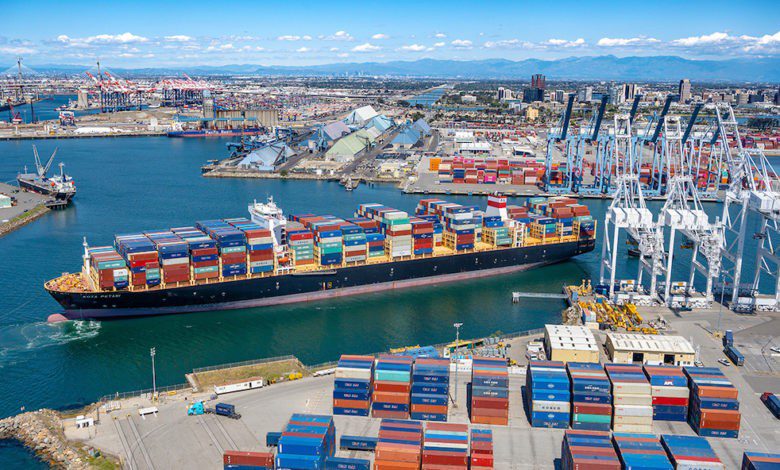Congressman Alan Lowenthal who represents the Port of Long Beach, along with co-sponsor congresswoman Nanette Barragán, yesterday introduced the Clean Shipping Act of 2022. This bill becomes the first stand-alone legislation to zero out pollution from all ocean shipping companies that do business with the United States.
The Clean Shipping Act of 2022 is modelled off of the European Union’s Fit for 55 regulatory framework for shipping.
“We no longer have the luxury of waiting to act,” Lowenthal said. “We must face the fact that we are at a tipping point in the climate crisis; we must move beyond fossil fuels, and that includes air, land and sea transportation sources. No emissions sources can go overlooked. This legislation will set clear standards, and drive the investment and innovation we need to transition to a zero carbon future. It will clean up our ports once and for all, with a straightforward nationwide policy. This bill is the right policy for the future of our planet, for the health of our communities, and ultimately for the resiliency of goods movement.”
If passed, the bill would give the Environmental Protection Agency powers to set carbon intensity standards for fuels used by ships, which would require lifecycle carbon dioxide-equivalent reductions of 20% from January 1, 2027, 45% from January 1, 2030, 80% from January 1, 2035, and 100% from January 1, 2040, relative to the 2024 emissions baseline, a timeline far stricter and more ambitious than what is currently on the table from global regulator, the International Maritime Organization.
Port communities should not be sacrifice zones
The act would also make it mandatory to eliminate in-port ship emissions by 2030.
“The Clean Shipping Act of 2022 is bold legislation that will make the United States a global climate leader in addressing pollution from the shipping industry and protect the health of port communities in Los Angeles and around the country,” said co-sponsor Barragán who represents the port of Los Angeles.
“Communities living near ports breathe in a toxic blend of exhaust that burns some of the dirtiest fuels on the planet, an unacceptable reality of our transportation system that has gotten worse with the increase in delivery goods. Port communities should not be sacrifice zones. Congressman Lowenthal’s legislation is critical to protecting the health of millions of Americans and acting on a significant yet overlooked source of climate pollution,” said Katherine García, director of Sierra Club’s Clean Transportation for All campaign.






